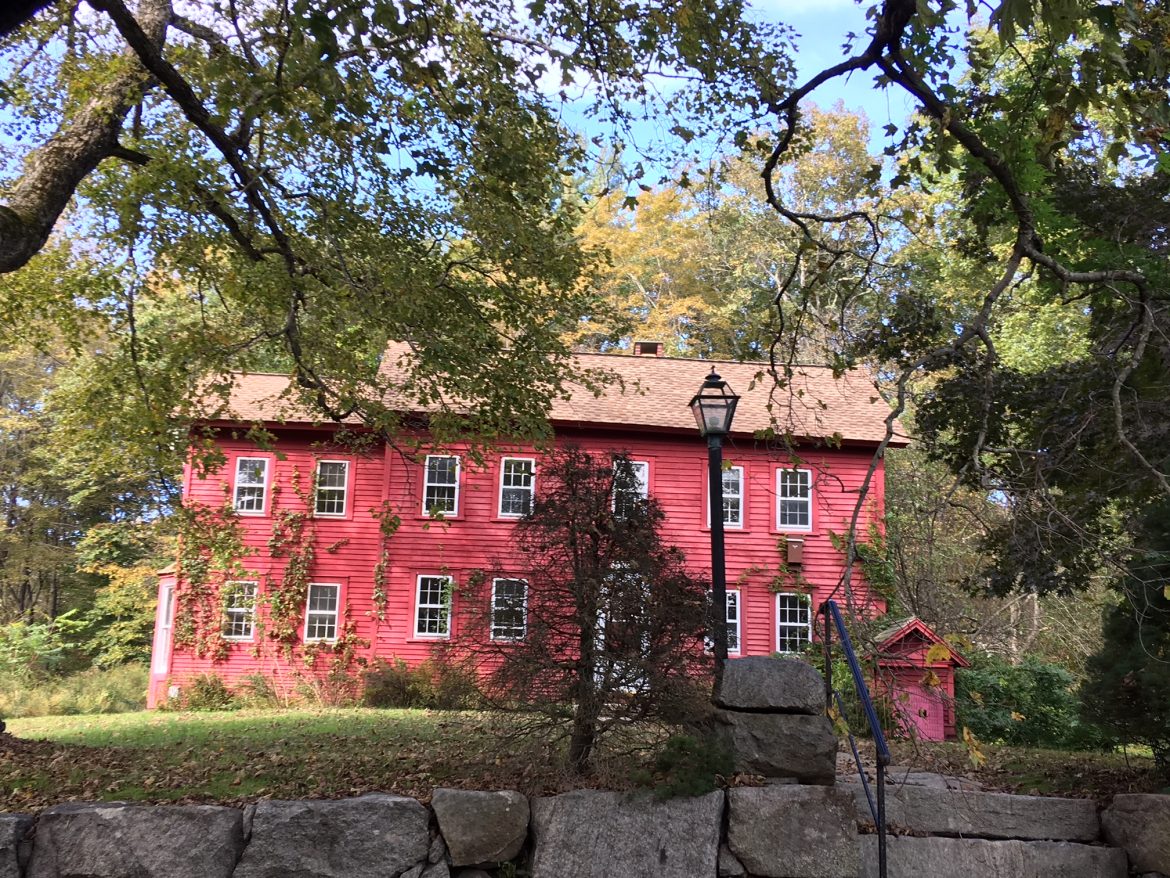The Planning & Zoning Commission on Tuesday approved a special permit for 1124 Valley Road that will enable the New Canaan Land Trust to establish its headquarters in the circa-1750 farmhouse located on the property, which abuts the Grupes Reservoir.
The approval of the special permit follows the Land Trust’s purchase of the antique home from the First Taxing District (FTD) of Norwalk, which acts as a municipal water company. The town contributed $150,000 toward the purchase. In terms of acreage, the Land Trust and FTD are two of the largest land owners in New Canaan.
Under the terms of the private land deal, 1.82 acres of the four-acre property will be deeded to the Land Trust by FTD. Of the 1.82 acres, one acre will be combined with the adjacent Browne Preserve, which the Land Trust owns, while the house—which was once slated for demolition—will be situated on remaining 0.82 acres.
FTD is retaining the remaining 2.17 acres of the four acre lot. Part of the purpose of its request for the special permit is for the town to recognize the 2.17-acre parcel as a legally non-conforming lot, as it exists in a four-acre zone. However, during Tuesday’s meeting, Brian McCann, attorney for FTD, told the commission there are no plans to develop the property, which FTD purchased in 2006.
“While the land was and is a significant acquisition for the District, due to its proximity to the reservoir, the dwelling is considered more a liability than an asset to the District,” McCann said during the meeting, held at Town Hall and via videoconference.
McCann said approval of the special permit—which is among the last steps in the land acquisition deal—would help the Land Trust meet several important goals.
“One would be the preservation of the 270-year-old farmhouse,” he said. “Another would be preserving the Browne Wildlife Sanctuary by reuniting the original farmland parcels. A third would be the preservation of open space – and the fourth is providing a headquarters for the Land Trust, which would allow it to maintain and improve their land preservation operations.”
The antique house, which has seen updates to its interior in the past, will be used by the Land Trust as a residence for its executive director and will also serve as an office for Land Trust operations. In addition to the full-time director, one full-time employee would also work in the office space on the first floor of the house, said John Winter, executive director of the Land Trust.
“We currently have two full time employees [including the director],” Winter told the Commission. “And a part-time, what we call stewardship… the people who do our land maintenance, who join us in the summertime.”
An existing shed on the property will be used to store maintenance equipment.
One concern raised by P&Z was whether there would be enough parking for the house, considering it will now be used as an office by Land Trust staff.
Winter explained that a parking area is available for the house just off Valley Road with room for four to five cars. He said the grass parking area would be improved with the addition of gravel.
When Commission Chair Dan Radman asked Town Planner Sarah Carey whether—since the house is being used as an office—the application for special permit should be a commercial application as opposed to a residential application, Carey said from her discussion with the Land Trust, because the executive director will resident the house, it can still be classified as a single-family home with a home-based business.
When Commissioner John Kriz asked whether the property had been inspected for the presence of old septic systems, oil tanks or other waste, Winter replied that there was no visual evidence of those things and that no soil sampling had taken place.
Art Berry, treasurer for the Land Trust, who was in attendance, said the land deal is a “win-win” for the organization.
“We’ve been looking for a headquarters for about eight years, and this could be a residence for a full-time executive director, which we would like to have available,” Berry said. “It’s a historic house, as you know, and it abuts an existing property of ours.”
Berry later added that the antique house is “structurally sound,” and that any improvements would be modest in nature. Any improvements would need to be in compliance with a special carve-out in the memorandum of understanding between the two parties allowing some restoration and landscaping work to take place.
“This house will run with the land,” Berry said. “We think its a wonderful kind of adaptive re-use of an antique that was once threatened with demolition.”
The commission’s approval of the special permit is contingent on the Land Trust providing a site plan delineating the parking area, a stipulation on lighting for the parking area, and a land dedication agreement approved by the zoning enforcement officer.

And to think it would have been demolished. Thank you Land Trust & those who were able to accomplish this. I was inside the dwelling when in was first up for sale. I was attracted to the look and the possibilities it offered living in this beautiful home. It will be in good use by the Land Trust organization…
Thank you P&Z, NCLT and FTD for seeing the value in this gorgeous antique and its relevance and connection to the land. I love that it has been given a second life.